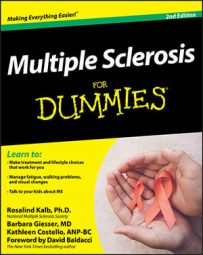Even though the decision to use a mobility aid is distressing for many people with multiple sclerosis (MS), using one is an effective way of letting the people around you know that you’re doing everything that you can to get around safely and independently. It sends a clear message: “I have some difficulty with walking, balance, or fatigue, and I’m dealing with it.”
The important benefit here is that people will feel more relaxed and comfortable around you, instead of worrying all the time about what help you might need.
Jack resisted using a mobility aid for quite some time. Even though he had to rely on walls or furniture to help him maintain his balance, Jack was convinced that walking with a cane would make him look disabled.
One day as he was making his way unsteadily down the street, a passerby called out to him, “Why don’t you do your drinking at home?” That was all Jack needed to decide it was time for a cane. Not only would the cane provide stability, it would also send a clear message that his problem had nothing to do with alcohol consumption.
People’s reactions to mobility aids, such as canes and electric scooters, will vary tremendously, so be careful not to jump to conclusions. One MS patient waited months before deciding to use her new scooter in public. She was very embarrassed and sure that people would stare and feel sorry for her.
During her public “debut,” a man ran up and said, “What a great gadget — where did you get it? I want to get one for my wife. Do they come in blue?” Maybe the fact that her scooter was scarlet red and looked pretty spiffy made it easier for this man to break the ice.
So, keep in mind that most types of mobility equipment now come in designer colors, and some, like canes, for example, can be decorated in a variety of ways. Believe it or not, mobility aids can even make a fashion statement.

